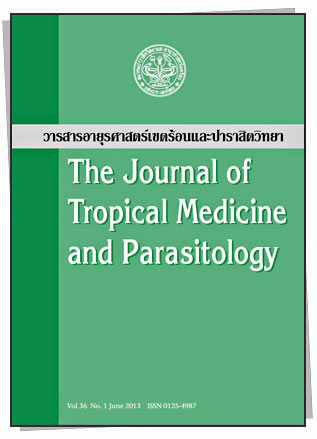Mass Spectrometry-based Parasitic Proteomics
Main Article Content
Abstract
Abstract
Proteomics is a technique that can generate profiles of whole proteins in a biological sample. Proteomics studies yield protein identification, post-translational modifications, as well as abundance information. In the general workflow, proteins from a biological sample are digested by protease, and separated by liquid chromatography; mass spectrometry is then used to determine their mass-to-charge ratio. The mass-spectrum pattern shows amino-acid sequences and post-translational modifications of peptide/protein ions. Data obtained from mass-spectrometric analysis are interpreted using bioinformatics. Proteomics is useful in several research areas, including parasitology, where it can potentially elucidate the pathology of parasitic illness. This paper reviews the principles of proteomics, as well as its key instruments and research applications in parasitology, including hostparasite interactions, vaccine development, drug-target identification, and diagnosis of parasitic diseases.
Keywords: proteomics, mass spectrometry, parasitic disease
